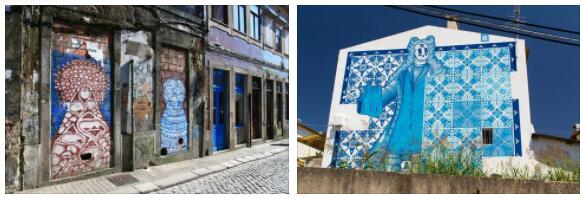Excellent connoisseur of the stage, he has a sense of comedy and social satire. While Szigligeti’s followers (Giuseppe Szigeti, Edoardo Tóth, Francesco Csepreghy) sometimes even surpassed him, Jókai’s splendor overshadowed the other novelists of the time (Vas Gereben, Carlo Szathmáry, Alberto Pálffy, Luigi Degré, Ladislao Beöthy, Carlo Vadnay) and also the school of Petőfi and Arany produced only epigones. The best part of the activity of one of these, Carlo Szász (1829-1905), consists in the translation of foreign classics: he is also responsible for the first complete Hungarian version of the Divine Comedy. The melancholy and meek poetry of Giuseppe Lévay was also influenced by Michele Tompa in his ideas; Colomanno Thaly (1839-1909), eminent historian of the time of Rákóczi, was the first to collect the songs of the Kuruc and wrote his beautiful poems in their spirit and in an archaic language; the novel in verse The hero of the morgana fairy, by Ladislao Arany, son of Giovanni, is the most precious fruit of this literary genre which flourished in Hungary under the influence of Byron and Pushkin; Paolo Gyulai (1825-1909) left an imprint on the literary life of the second half of the nineteenth century not with his poems, but with his activity as a critic and historian of literature.
Only two writers followed particular paths: the playwright Emerico Madách (1823-1864) and the pessimist lyricist Giovanni Vajda (1827-1897). The former became famous in Europe for his mighty dramatic poem The Tragedy of Man ; the second devoted a good part of his poetry to social problems sadly neglected in the apparently happy decades, which followed the compromise with the Habsburgs of 1867, made thanks to Francesco Deák. The growing well-being of the bourgeois class, the rapid development of commerce, industry, culture, produced a certain optimistic atmosphere, in which the greatest patriotic virtue was the glorification of achievements, the incensation of national greatness, the cultivation of the traditions of past. With few exceptions, the poets found their inspiration in a noble patriotism, but self-satisfied and infertile; their art – in the footsteps of Giovanni Arany – is not without a certain dignity, which however often gets lost in a rhetorical emphasis. Alessandro Endrődi, Michele Szabolcska, Andrea Kozma, Nicola Bárd and above all Árpád Zempléni, Giulio Vargha and Alessandro Sajó, enlivened this solemn chorus of opera with the most personal accents. In these years, many good translations mediated the influence of Byron, Heine, de Musset and Leopardi. Thus, in part, one can explain the pessimistic poetry of Giulio Reviczky (1855-89), which in form and content is independent of the dominant school. An even more singular phenomenon is constituted by Eugenio Komjáthy (1858-1895), in whom the expressive capacity is not always proportionate to the ecstasies of a soul burning with mystical passion. many good translations mediated the influence of Byron, Heine, de Musset and Leopardi. Thus, in part, one can explain the pessimistic poetry of Giulio Reviczky (1855-89), which in form and content is independent of the dominant school. An even more singular phenomenon is constituted by Eugenio Komjáthy (1858-1895), in whom the expressive capacity is not always proportionate to the ecstasies of a soul burning with mystical passion. many good translations mediated the influence of Byron, Heine, de Musset and Leopardi. Thus, in part, one can explain the pessimistic poetry of Giulio Reviczky (1855-89), which in form and content is independent of the dominant school. An even more singular phenomenon is constituted by Eugenio Komjáthy (1858-1895), in whom the expressive capacity is not always proportionate to the ecstasies of a soul burning with mystical passion.
It was not writers sensitive to social problems (Luigi Tolnay, Arnaldo Vértesy) who changed Jókai’s popularity, but Colomanno Mikszáth (1847-1910).
In Mikszáth’s novels and short stories the tradition of romanticism still lives, the simple representation of Hungarian classicism and Jókai’s passion for anecdotes. At the same time, however, the Mikszáth also represents the great European flowering of realism and that positivist conception of the world which constitutes its spiritual basis.
According to ask4beauty, the heir to the popularity of Mikszáth, Francesco Herczeg (born 1863), glorified in his first novels the outdated ideals of the declining aristocratic society. He later drew the types and problems of Hungarian life which was transforming from its roots. Its exposure does not have a purely Magyar flavor and if, despite its coldness, it manages to fascinate, this is due to its discipline, the strength of the composition, the clarity and precision of the style. His art culminates in historical novels: Pagani, The door of life, Seven Swabians. In many respects, Géza Gárdonyi (1863-1922), the poet of the Hungarian village, stands perfectly in contrast to him. She is a closed, sensitive soul, full of tender compassion for the characters she creates. He knows how to draw virtuously the current Hungarian life (My village, The respectable old man); but he also painted, in more than one fresco, the past of his nation (The invisible man, The slaves of God, The stars of Eger). Gárdonyi and Herczeg also occupy an important place in theatrical literature.




